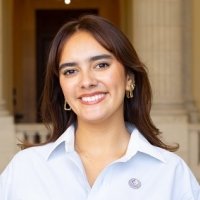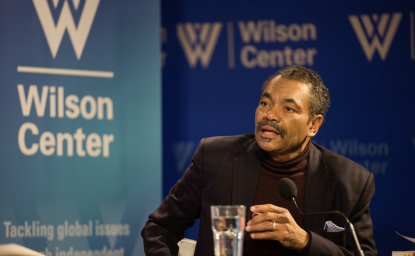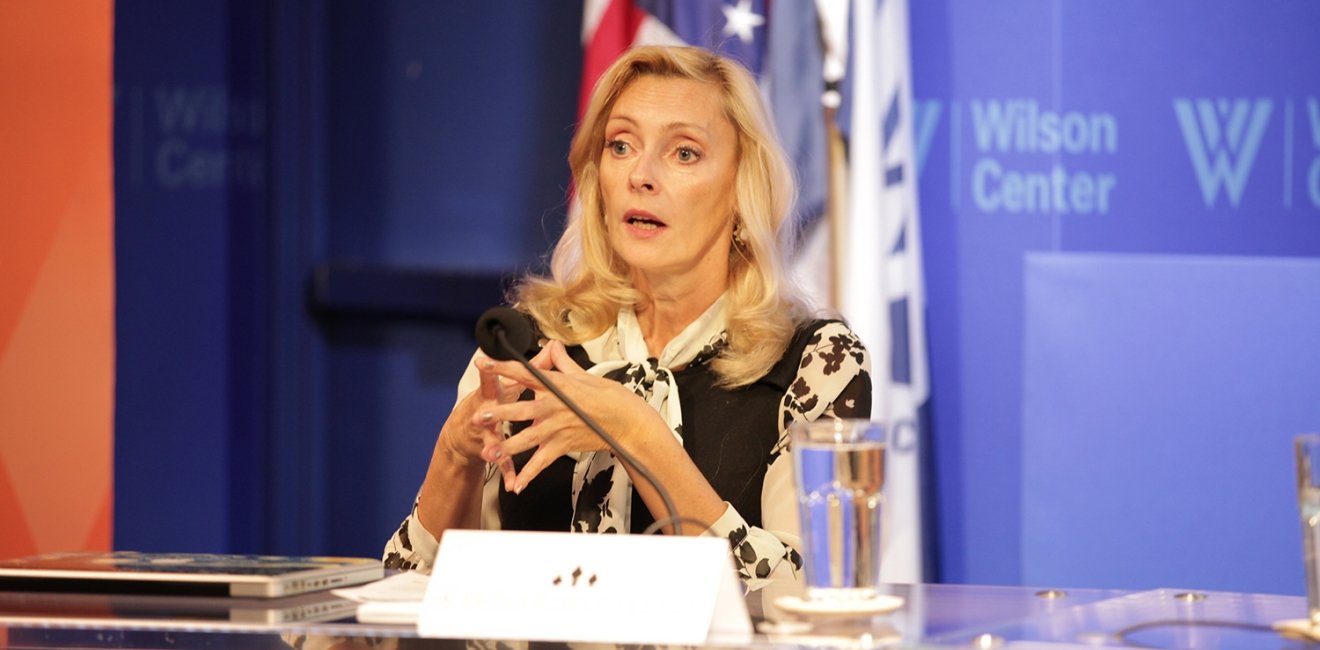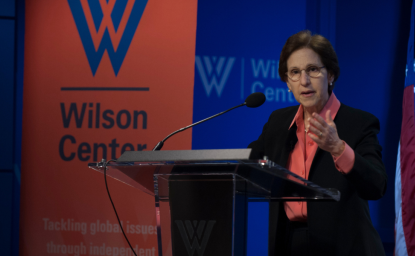
A blog of the Wilson Center
Dr. Karina Korostelina’s distinguished career as a social psychologist and expert in conflict resolution exemplifies the profound impact academia can have on real-world peacebuilding. A Kennan Institute fellow at the Wilson Center, her work has advanced understanding of identity in conflict, intergroup relations, and sustainable peace processes worldwide.
Born and raised in Crimea, Ukraine, Korostelina’s multicultural community laid the foundation for her future work. Growing up amidst ethnic and religious diversity, she pursued studies in social psychology, focusing on the Crimean conflict’s unfolding dynamics. As tensions in Crimea escalated, Korostelina felt an increasing need to analyze the situation and actively engage in conflict resolution. This led her to establish the Institute of Peace in Crimea.
After receiving numerous grants and fellowships, Korostelina joined the Wilson Center’s Kennan Institute, where she experienced a significant career milestone. “Working with the Wilson Center was incredibly transformative,” she said. “The connections I made with scholars across disciplines and access to Washington’s vast network of organizations gave me tools and allies I’ve carried through my career.”
Reflecting on her time at the Wilson Center, Dr. Korostelina highlights the opportunity to collaborate with scholars from around the world and organize discussions as defining experiences. She felt her work was truly valued as a Kennan Institute scholar, which she describes as a significant moment in her career. Although her fellowship concluded in February 2000, she still feels the Kennan Institute’s support, frequently returning to share her research, participate in events, and contribute to essential dialogues.
Dr. Korostelina’s work centers on bridging divides through what she calls the “bridge model” for peacebuilding. This model emphasizes creating commonalities between conflicting groups, empowering marginalized identities, and addressing core issues like trust-building, threat reduction, and balanced power dynamics. Through her Sustainable Peace Lab, she analyzes how peace processes address identity and inclusivity, with recent research comparing 12 international peace initiatives.
Korostelina has applied her research globally, working with entities like the US State Department to improve conflict mitigation projects. Her efforts extend from Ukraine to countries like Bangladesh and Senegal, where she has conducted workshops to foster effective peace strategies.
Korostelina’s extensive research on Ukraine has revealed a gradual shift in national identity, especially among younger generations. She observes that Ukrainians increasingly embrace a more inclusive civic identity, contrasting traditional ethnic-based nationalism. However, she says ongoing conflicts, especially the current war with Russia, challenge this shift, often pushing society back toward ethnic definitions of identity.
Looking to the future, Korostelina remains committed to her global mission. “Peacebuilding is both inspiring and frustrating,” she says. “The good news is, I have a job forever; the bad news is, I have a job forever.” She plans to expand her work in environmental peacebuilding and continue researching identity’s role in sustainable peace.
Dr. Karina Korostelina’s enduring commitment to peace and understanding reflects the crucial work of scholars in bridging theory with action, creating meaningful impacts in the most challenging global conflicts.
This blog was researched and drafted by Samantha Carrillo.
Author


Kennan Institute
The Kennan Institute is the premier US center for advanced research on Eurasia and the oldest and largest regional program at the Woodrow Wilson International Center for Scholars. The Kennan Institute is committed to improving American understanding of Russia, Ukraine, Central Asia, the South Caucasus, and the surrounding region through research and exchange. Read more

Explore More in Scholar & Alumni Spotlight
Browse Scholar & Alumni Spotlight
Olufemi Vaughan: Shaping Governance Through Scholarship and Dialogue

Dr. Maurice Jackson: The Sounds of Resistance Throughout History


